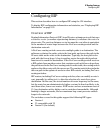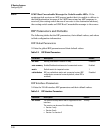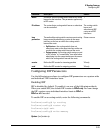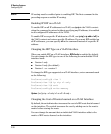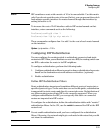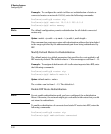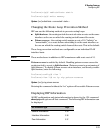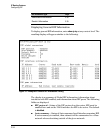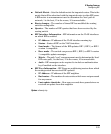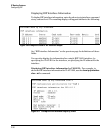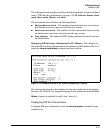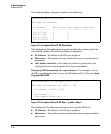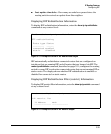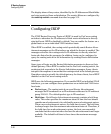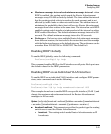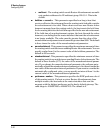
IP Routing Features
Configuring RIP
■ Default Metric – Sets the default metric for imported routes. This is the
metric that will be advertised with the imported route to other RIP peers.
A RIP metric is a measurement used to determine the 'best' path to
network; 1 is the best, 15 is the worse, 16 is unreachable.
■ Route changes – The number of times RIP has modified the routing
switch’s routing table.
■ Queries – The number of RIP queries that have been received by the
routing switch.
■ RIP Interface Information – RIP information on the VLAN interfaces
on which RIP is enabled.
• IP Address – IP address of the VLAN interface running rip.
• Status – Status of RIP on the VLAN interface.
• Send mode – The format of the RIP updates: RIP 1, RIP 2, or RIP 2
version 1 compatible.
• Recv mode – The switch can process RIP 1, RIP 2, or RIP 2 version
1 compatible update messages.
• Metric – The path “cost”, a measurement used to determine the 'best'
RIP route path; 1 is the best, 15 is the worse, 16 is unreachable.
• Auth – RIP messages can be required to include an authentication
key if enabled on the interface.
■ RIP Peer Information – RIP Peers are neighboring routers from which
the routing switch has received RIP updates.
• IP Address – IP address of the RIP neighbor.
• Bad routes – The number of route entries which were not processed
for any reason.
• Last update timeticks – How many seconds have passed since we
received an update from this neighbor.
Syntax: show ip rip
3-35



